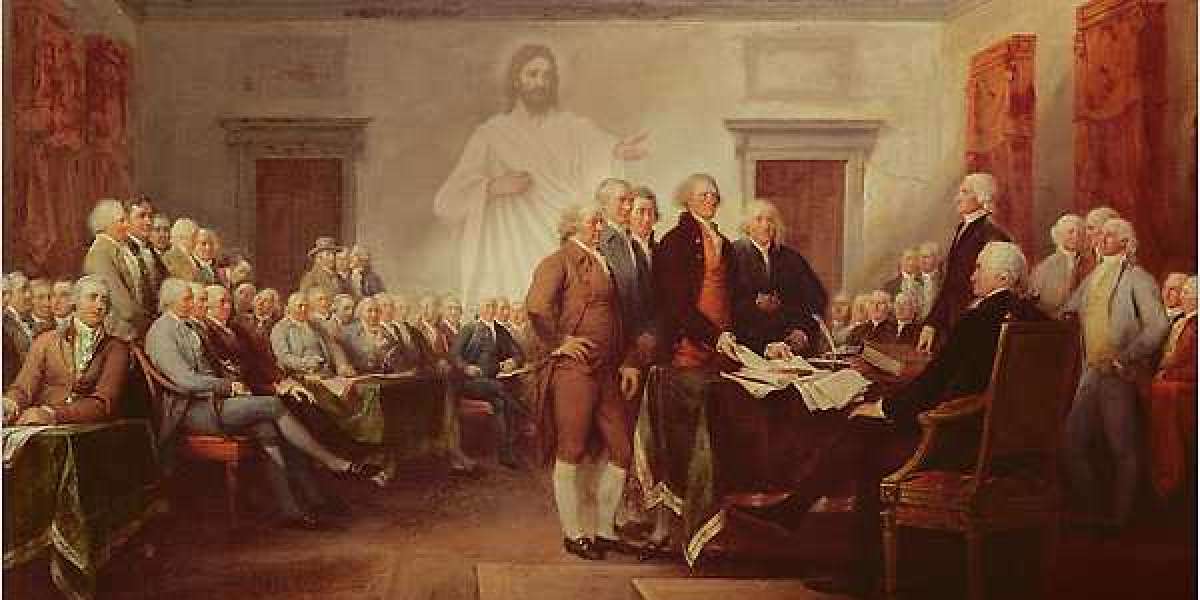Most Americans can quote Patrick Henry's famous statement, "Give me liberty or give me death," but I wonder how many of them would identify Henry as the originator of this statement: "It cannot be emphasized too strongly or too often that this great Nation was founded not by religionists, but by Christians; not on religions, but on the Gospel of Jesus Christ. For that reason alone, people of other faiths have been afforded freedom of worship here."
People these days are very quick to point out Jefferson's wall of separation' letter to a Danbury Baptist Church meant that Christianity had no place in the heart of the writer of the Declaration , but are they aware of what is written in Jefferson's personal Bible: "I am a real Christian, that is to say, a disciple of the doctrines of Jesus. I have little doubt that our whole country will soon be rallied to the unity of our creator." To say that Christianity had no influence over his writing is to diminish Jefferson's personal faith.
And do people also realize that more than half of the signers of the Declaration of Independence, who founded the United States, received divinity school training from Christian denominations? We may want to rewrite history and revise the Founding Fathers' intentions to suit our modernistic, non-absolutist, secular morality, but the facts about their lives speak otherwise. Most of the political giants who founded America were Christians, and their faith shaped their principles of fierce independence and rugged radicalism. In fact, in 1774 Thomas Jefferson wrote, "The God who gave us Life, also gave us Liberty."
Indeed, the First Continental Congress during the War of Independence sent for an order from Holland for 20,000 Bibles to ensure that the people and troops could maintain their Christian faith. And during times of trouble and indecision in their meetings, the same Congress resorted to prayer, which the 'non-believer' Benjamin Franklin also led.
Even George Washington, the Father of our Nation, wrote this in his personal journal in 1752: "Make me to know what is acceptable in Thy sight, and therein to delight, open the eyes of my understanding, and help me thoroughly to examine myself concerning my knowledge, faith, and repentance, increase my faith, and direct me to the true object, Jesus Christ the Way, the Truth, and the Life." And when he addressed the Delaware Indian Chiefs in 1779, he said, "What students would learn in American schools above all is the religion of Jesus Christ."
These are but a few examples of the Christian beliefs that were held by our Founding Fathers. Those who seek to deny their faith and, subsequently, the founding of the United States of America as a Christian nation, are only imprinting upon the past their own present secular opinions and unhistorical misconceptions.
Finally, let us remember that the Constitution guarantees a freedom of religion, not from religion. It wasn't political secularism that established this clause: it was based on Christian tolerance of loving one another, and doing to others as you would have them do for you.
Article Source: http://EzineArticles.com/











